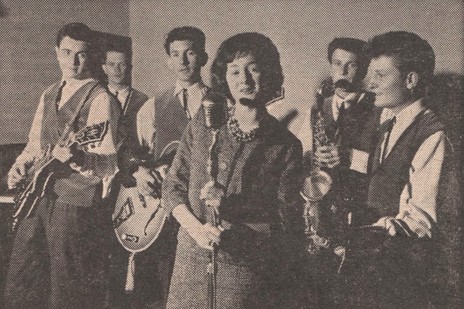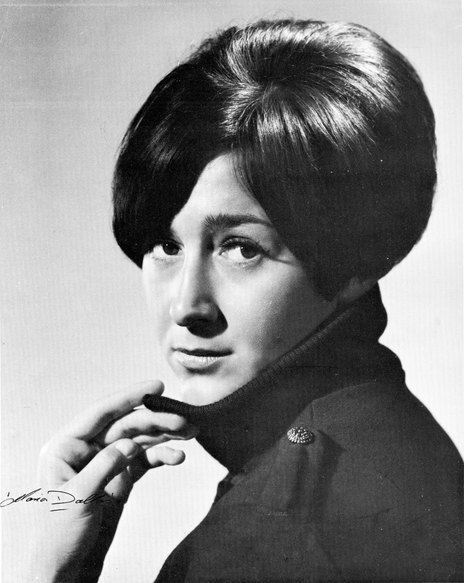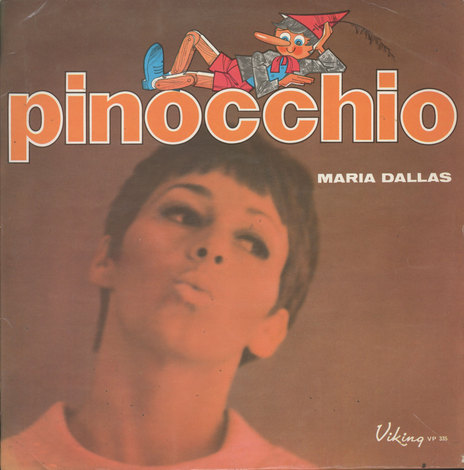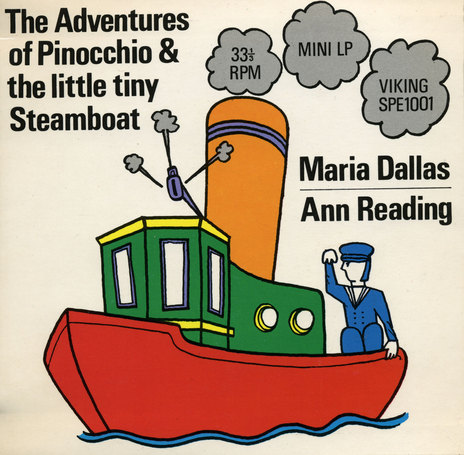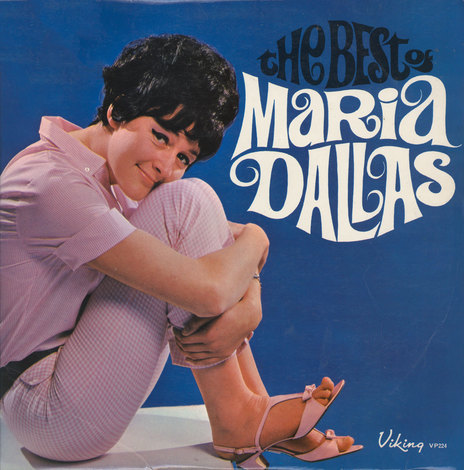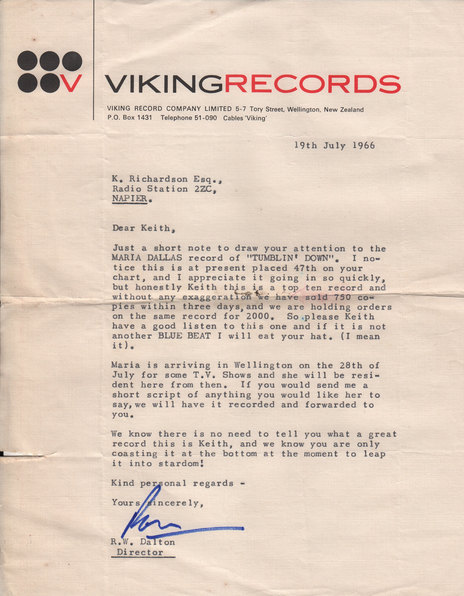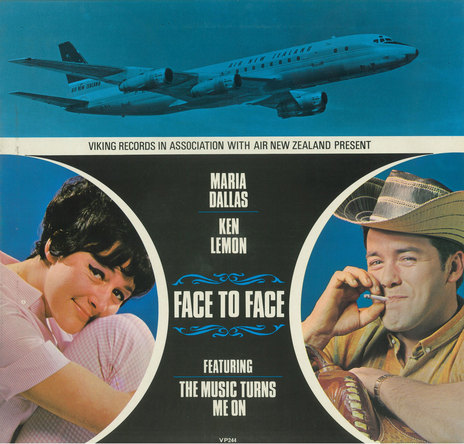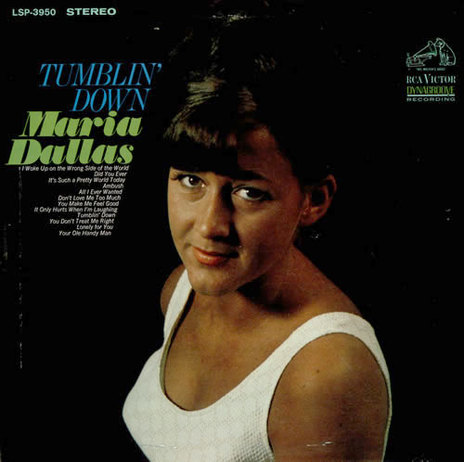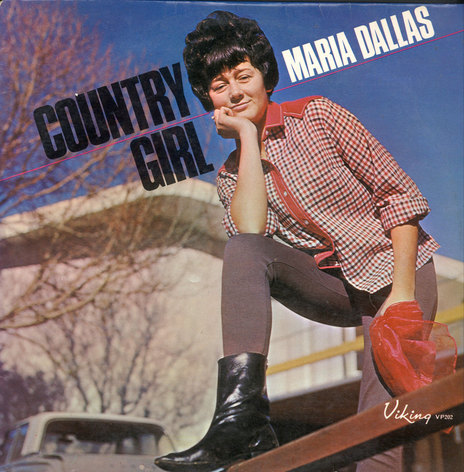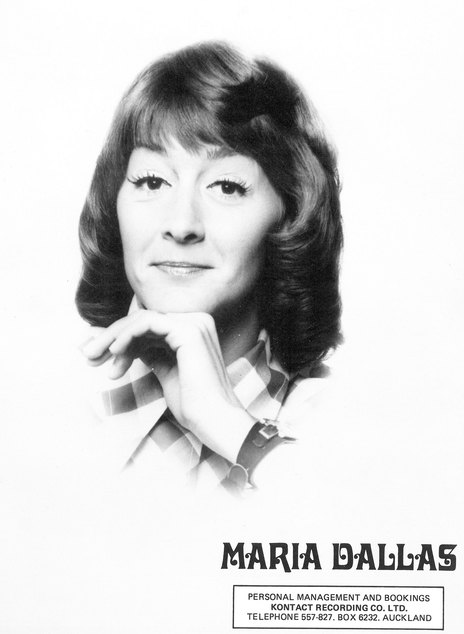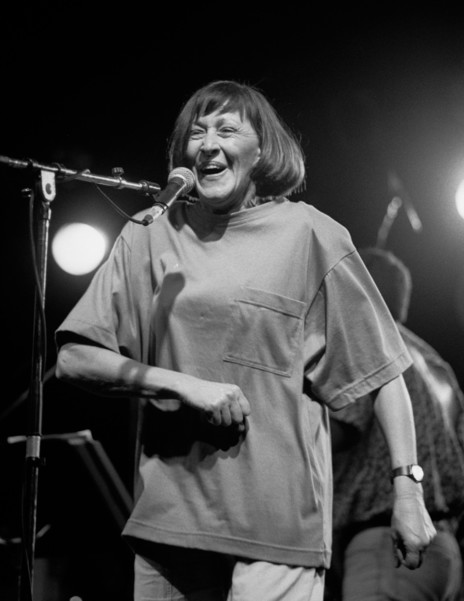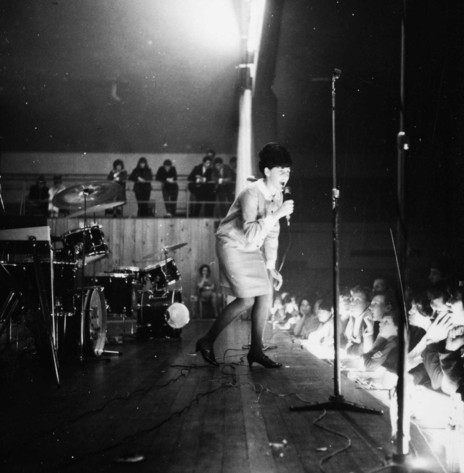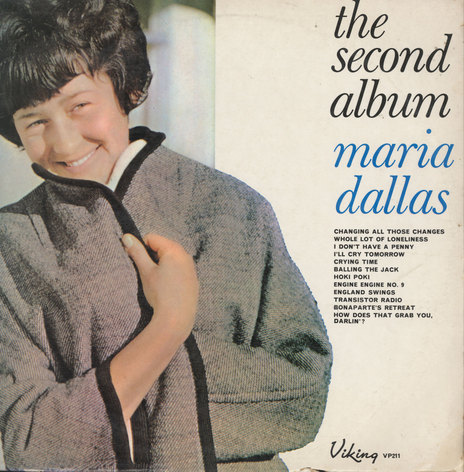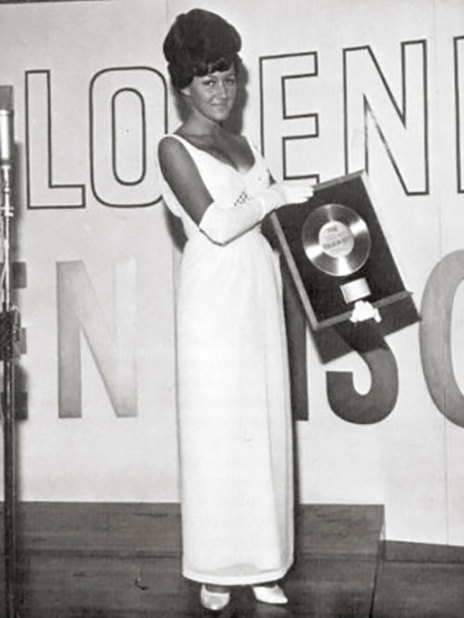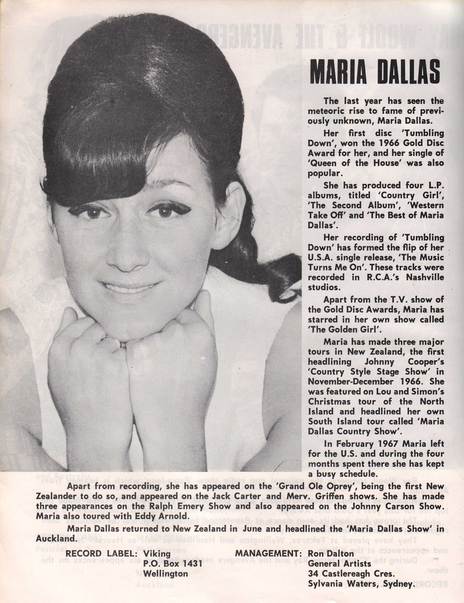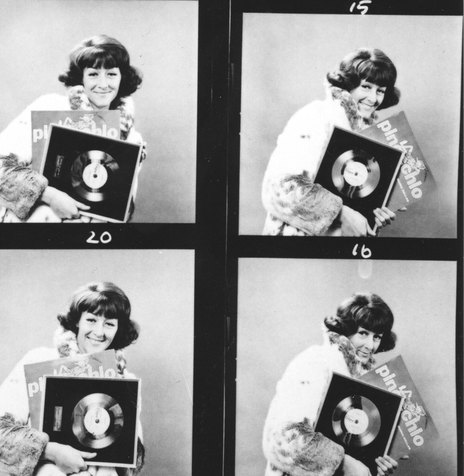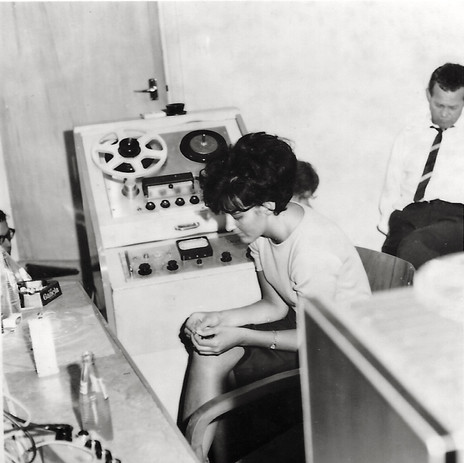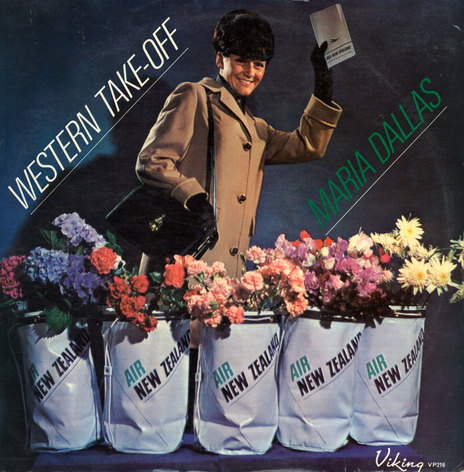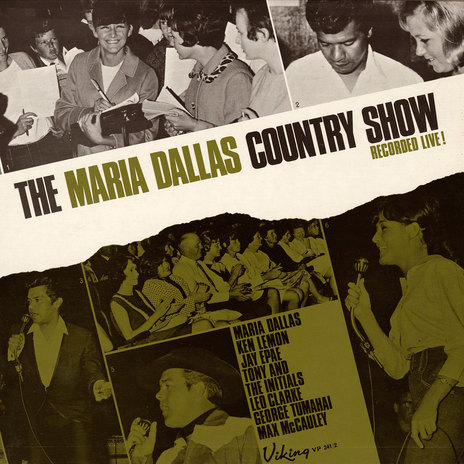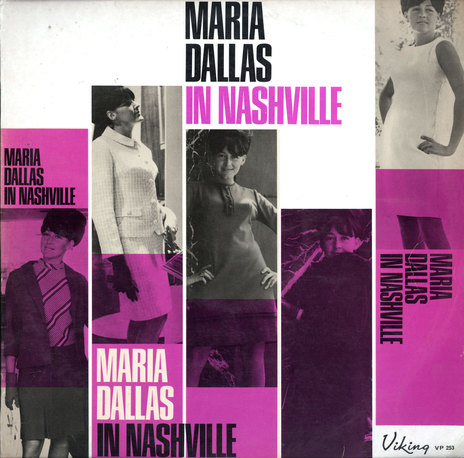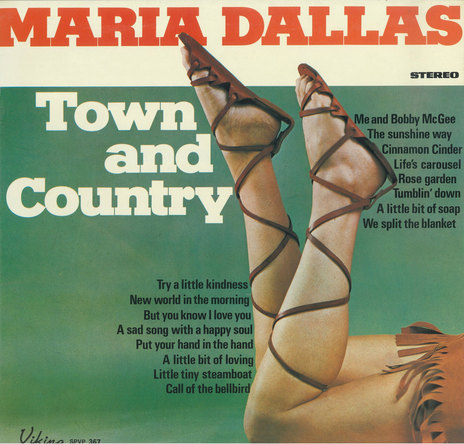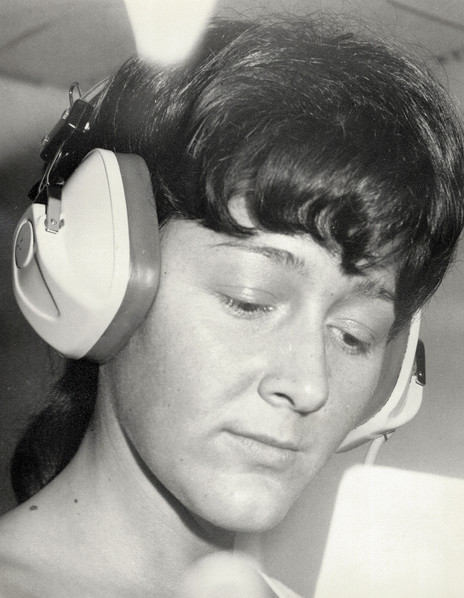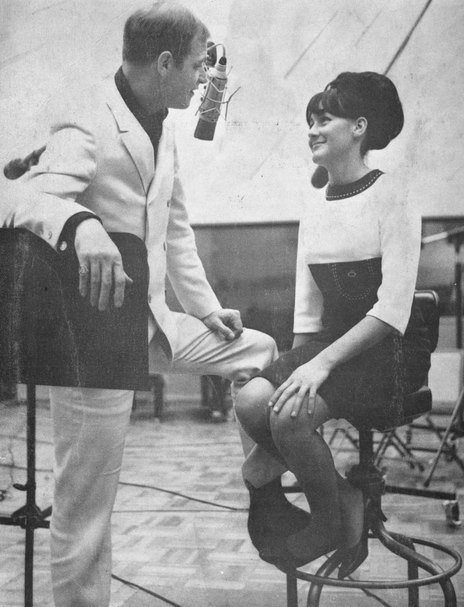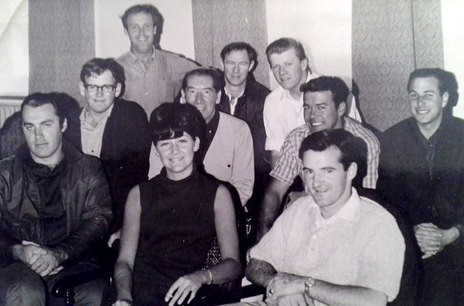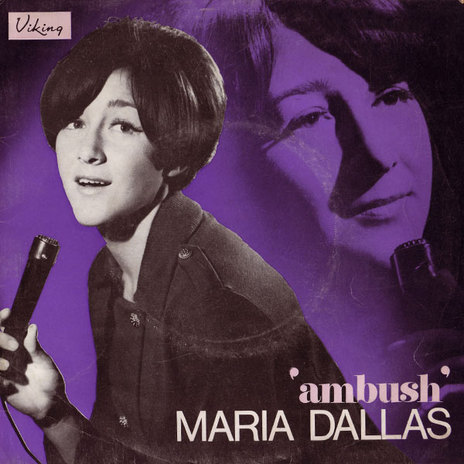Soon both HOWARD MORRISON AND MIKE PERJANIK WERE SPREADING THE WORD.
Teaming up with a school friend, Isabel Leigh, Marina started singing duets at dances, with Leigh doing harmonies. They won a Johnny Cooper Talent Contest, and began hanging around the rehearsals of a local bandleader, Lew Manson. He finally asked her if she’d try out and Marina became the Lew Manson Band vocalist, performing around the Waikato.
“Then there was this big Lions Club do,” Dallas later told the Auckland Star. “I had to sing there and I was really frightened. They had booked all these names like Dinah Lee and Lou and Simon.”
Lou Clauson of Lou and Simon returned to Auckland and told Ron Dalton of Viking Records about the brunette he’d heard with the voice. He wasn’t the only one. She had appeared with Howard Morrison and Mike Perjanik at a Morrinsville hotel and they were both spreading the word. Dalton was interested.
Tumblin’ Down
Dallas auditioned for Viking and was signed to the label. Ron Dalton wanted to do an album, but Dallas didn’t like any of his suggestions. She was country, he wanted pop. Dalton said “Forget it”. Dallas reconsidered. Viking booked her session time in Wellington in June 1966.
It was her first trip by plane and she wore her black-and-white reversible coat and a Russian-style fur hat. “I thought I looked really groovy,” Dallas said.
When she landed, Dalton told her that he wanted to change her name. "I didn’t know what to say. I thought it would be ok. He said Devcich would be too hard to remember."
In the studio, Dallas met Jay Epae, a singer from Manaia in Taranaki, who had moved to the USA in 1957. He’d released a number of singles. One of his songs, ‘Putti Putti’, had been picked up by a Swedish pirate radio station in 1961 and sold more than 50,000 copies in Scandinavia. Epae toured in Europe on the strength of it, but in 1965 he was back in Wellington.
Also at the session was Garth Young, pianist and arranger. In 2022 he recalled to Steve Braunias: “That whole morning was very interesting. It was Maria’s first attempt at recording and was just a sort of experiment. Jay Epae was also present. At one stage Jay disappeared and it turned out that he had gone to the toilet. Apparently while he was sitting on the loo he got an idea for a song.
“When he returned he was clutching a length of loo paper (unused) in his hand and he went over to Ron and told him that he had written a new song. Ron got him to sing it to us (Dave Fraser, Kevin Watson, Slim Dorward and me) and really liked it. He then asked Maria whether she could learn to sing it which she did on the spot. Within a short time it was down on tape – with Frank Douglas as recording engineer – and that was the original recorded version which soon became a huge hit. Later on we also did an album with Jay and one of the tracks of course was ‘Tumblin’ Down’.”
The song fit Dallas like a glove. Her voice was distinctive. She had a huskiness in the lower register that resolved into a clear strength when she started belting it out. The Viking arrangement of ‘Tumblin’ Down’ pushed her right to the front. At one moment it seemed it was just you and her, the next she was in a stadium.
It was an instant hit in a country where local artists invariably performed international chart-toppers and a whole industry had been constructed from re-recording them as fast as possible.
Loxene Golden Disc and after
Running from 1965 to 1972, the Loxene Golden Disc was created by an advertising agency for an anti-dandruff shampoo. It was one of the most successful branding exercises in New Zealand music history. Compilation LPs were issued every year with the 12 eligible tracks, and the winner was decided by public vote. The award was televised.
Winning the 1966 Loxene Golden Disc meant that Dallas entered a new phase of her career.
WNTV1 producer Christopher Bourn spotted Dallas at the award show. “I was impressed with her tremendous versatility,” he told the Auckland Star. The result was a TV special, where Dallas performed eight songs, supported by Jake Epae and the Dallas Four.
By May 1967, Dallas had been to Australia and more importantly to America, where she signed a contract with RCA. She recorded 24 tracks there, with the possibility of more. Dallas was based in Nashville but had performed in New York and Los Angeles, even though the performances were in violation of her visa.
When she returned to New Zealand, Dallas announced she was moving to Australia. Ron Dalton, still her manager, said he was sick of New Zealand’s government restrictions. At that time New Zealand had a highly regulated environment in terms of foreign currency transfers, a particular problem when a career was going international.
There was a sell-out audience for Dallas’ farewell concert at the Auckland Town Hall.
Wedding Bells Are Going to Chime
Dallas would have three hits in Australia. ‘Ambush’ was a sassy launch to her trans-Tasman career. Beginning straight-in with its chorus, it was one of the tracks she’d recorded in Nashville. There was fuzz guitar, keyboards and backing vocals. It made it to No.12 in Australia in October 1967. ‘Tumblin’ Down’ and ‘Handy Man’ followed.
While touring in Brisbane, Maria Dallas met Barry Kairl, who had been sitting at the back of a nightclub with a friend of hers while she was performing. Dallas had gone from a $16 a week hairdresser to being headlined as “the most highly paid woman in Australasia”, earning $600 a week. Kairl would be variously described as an ad-man and, eventually, as her manager.
On the 5th October 1968, Maria’s mother told the 8 O’Clock that Maria had phoned two weeks previously to announce her imminent marriage to Barry Kairl. “Naturally we were all a little disappointed,” Maria’s mother said, “but it was impossible for her to come home and I couldn’t go over there.”
“I’m having a baby,” Dallas announced over the mic to the Logan Park crowd.
Dallas began performing on Australian television: the popular Bandstand Show, the Joe Martin Show, and Twilight Hour From Sydney. She performed in clubs and hotels. But in 1969, Dallas was back in New Zealand, booked at the Logan Park where she wore a “micro-mini of white lace over shocking pink” made for her by Sydney ‘in-place’ The Purple Parrot.
‘I’m having a baby,’ Dallas announced over the mic to the Logan Park crowd. Her daughter, Jodi, was born in May. There were plans to settle in Remuera, but she was back working by October.
There were tours and TV specials, but there were also interviews that revealed other stories. She told the 8 O’Clock that establishing yourself in Australia was a hard task, especially in cabaret. It wasn’t much easier for her in New Zealand. She was ineligible for that year’s Loxene Golden Disc because all her current releases had been recorded overseas.
Poolside
In January 1970 the Auckland Star reported on an argument between Dallas’ husband, Barry Kairl, and Robin Slade, a journalist, which had ended up in a fistfight at the White Heron Lodge in Parnell. Slade had been pushed into the White Heron swimming pool. Charges were laid.
In evidence, it was revealed that Slade had expressed reservations about a TV programme, An Evening With… Maria Dallas. Kairl was fined $100 for assault, but he went to the media with his opinion a fortnight later. “The show admittedly was not one of Maria’s better efforts,” he said in an article written by Lew Pryme, “but there was something there for the average viewer.”
From late August until early October 1970, Dallas’ song ‘Pinocchio’ was the No.1 single in New Zealand. It had a simple, near Sandi Shaw perkiness until 30 seconds into it, when Dallas opened up her vocal range. It would be her last New Zealand hit.
Meanwhile, Dallas and Kairl returned to Australia, but as she later said, the relationship was like a “yo-yo”. They separated in 1983.
Sunshine State
Dallas was named Queensland’s Country Singer of the Year for six years running. During the late 1980s she owned Club Dallas, her own club in Brisbane. She toured New Zealand several times, even returning to the Waikato for performances in Hamilton and Morrinsville.
Over her career, she released more than 10 albums and at least 25 singles. She had chart hits on both sides of the Tasman. Her recordings have been used in TV commercials, most notably a series of Telecom TV ads.
Maria Dallas still lives in Brisbane, where she has made her home.
